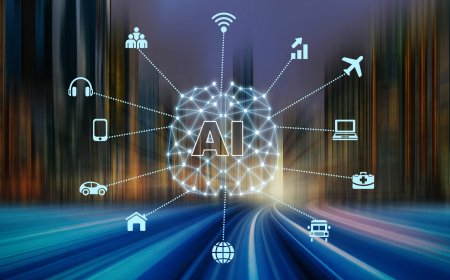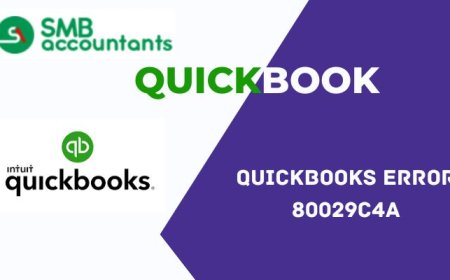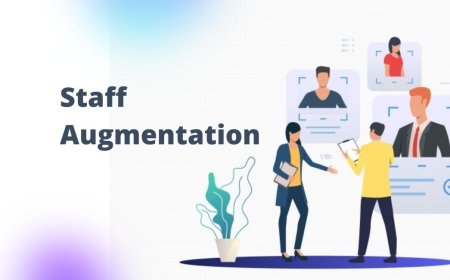The Importance of HRMS Software in Modern Organizations
Discover the importance of HRMS software in modern organizations to streamline HR processes, boost productivity, and enhance employee experience.

The Importance of HRMS Software in Modern Organizations
In this modern tech world, companies ranging from start-ups to large multinational corporations (MNCs) believe in the process of automation and cloud assistance. Maintaining huge amounts of data using a traditional database is not enough, though. Organizations seek smarter ways to manage their most valuable assets. Hence, the Human Resource System comes to business. From handling the candidate hiring process and onboarding to maintaining the entire employee lifecycle, from the day of employee exit to a smooth release, HRMS becomes a one-stop solution for every business.
Centralized Data Management
The organization sometimes faces significant challenges in managing spreadsheets and databases, as well as in addressing security issues during manual spreadsheet maintenance. Here, one of the fundamental roles of an HRMS is encountered. The system consolidates all employee-related information in a single, centralized location. Besides, it compiles all personal details and job history into performance records and training information, storing everything in a unified digital system.
Furthermore, the system eliminates the need for paper-based filing systems or scattered spreadsheets, reducing the administrative burden and improving data accuracy. Additionally, ESS assistance allows employees to operate independently.
Automated Payroll Processing
HRMS comes with multiple tools and add-ons, and cutting-edge payroll automation is one of them. Primarily, processing payroll is time-consuming and error-prone. Besides, Employees face issues while receiving it. HRMS software, along with Payroll assistance, accelerates the process by accurately calculating salaries, tax deductions, bonuses, overtime, and other financial components.
Besides, the software ensures that employees are salaried correctly and on time. Additionally, many HRMS platforms remain compliant and also explore features for handling statutory compliance, such as Provident Fund (PF), Employee State Insurance (ESI), professional tax, and income tax regulations, ensuring organizations remain legally compliant.Time and Attendance Management
HRMS solutions often come equipped with attendance tracking tools that monitor employee check-ins, check-outs, leave records, and work hours. These systems may integrate with biometric devices, swipe cards, or even mobile apps for remote teams.
By automating attendance tracking, HRMS reduces time theft, prevents buddy punching, and ensures accuracy in payroll processing. It also helps in managing shift schedules, overtime, and leave balances efficiently.
Enhanced Recruitment and Onboarding
Recruitment is a critical HR function, and HRMS platforms simplify this process end-to-end. From job posting and applicant tracking to interview scheduling and offer rollouts, everything is managed digitally. It allows recruiters to screen resumes, shortlist candidates, and collaborate with hiring managers seamlessly.
Once a candidate is hired, HRMS systems support onboarding by providing digital forms, document uploads, induction schedules, and task checklists. A smooth onboarding process increases engagement and helps new employees settle in faster.
Employee Self-Service Portal
One of the standout features of modern HRMS software is the employee self-service (ESS) portal. This functionality enables employees to access and manage their information independently, eliminating the need for constant HR intervention. They can view payslips, apply for leave, track attendance, update personal information, and submit reimbursement claims, all through a user-friendly interface that empowers employees, reduces administrative workload for HR, and promotes transparency across the organization.
Performance Management System
HRMS software welcomes performance management features and functionality which help the employers evaluate employees performance and generate feedback accordingly. With the system, the organizations can analyse employee performance, process right hike percentage during the appraisal or conniving bonuses and offering other benefits. Besides, aligned ESS portal, the performance tracking tool deliver opportunities to employees to manage their own performance through the self-assessment process.
Moreover, it also aids organizations in identifying high performers and skill gaps for training and promotions. Concisely, a right HRMS along with performance software creates a proper balance between employer-employee relationship, and maintain a transparency within workplace.
Training Management System
After hiring a candidate, one of the essential tasks is to initiate the induction process to gain a detailed understanding of whether the employee requires product and service-related training or job-related learning sessions. Additionally, proper upskilling and training are crucial for enhancing employee satisfaction and promoting long-term employee retention.
An HRMS platform helps organisations schedule training programs, assign courses, track progress, and generate feedback, among other benefits. It assists the employees stay current in their roles and supports career progression. Moreover, maintaining digital records of training history facilitates audit compliance and internal performance evaluations.
Regulatory Compliance and Reporting
For every company, it is quite challenging to stay updated with central and state-wise regulatory compliance and on-time reporting. The entire process encompasses employment laws, tax regulations, labour codes, and timely labour-related matters, as well as other updates and more. HRMS software instils confidence by ensuring that organisations meet these legal requirements through the automation of compliance checks, maintenance of digital records, and updates to features in response to changes in law.










































